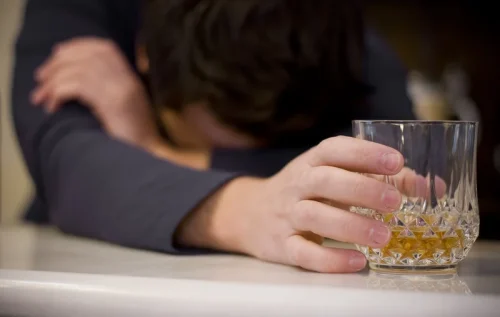
If you’re struggling with alcohol dependency and need assistance, don’t hesitate to reach out for help. Their compassionate team is dedicated to providing the care and tools necessary for lasting recovery. Contact Wellness Retreat Recovery to start your path toward a healthier, sober life. Night sweats during alcohol withdrawal are largely due to Substance abuse the hyperactivity of the nervous system, which is common during this period.

Liver Damage Risks
With around 2 years of experience in the wellness industry, she is connected to leading experts and doctors to provide our readers with factually correct information. Night sweats can interrupt sleep, as some people must get out of bed to make them stop, change their clothes or change their bedding. Repeated episodes can lead to poor sleep and then fatigue the following day. Alcohol-related liver disease also does not usually cause symptoms until the liver is severely damaged. Night sweating after a night of drinking sweats are often self-limiting and not a cause for medical intervention.
We can help you along the path to a healthy, successful, and stable life.
Alcohol is a diuretic, which means it increases urine production and can lead to dehydration. Alcohol also increases urination, which makes your body lose water along with sweat and can lead to dehydration. Our science-backed approach boasts 95% of patients reporting no withdrawal symptoms at 7 days. There are a few explanations for why you may sweat in your sleep after drinking alcohol. People experiencing mild night sweats from occasional alcohol consumption may find relief using home remedies. A person may not experience any symptoms or signs of liver damage or scarring, which people call cirrhosis, until the liver is badly damaged.

Can Night Sweats Be Caused by an Alcohol Intolerance?

Join our supportive sober community where each day becomes a step towards personal growth and lasting positive change. Plus, we’re always introducing new features to optimize your in-app experience. We recently launched our in-app chatbot, Melody, powered by the world’s most powerful AI technology. Melody is here to help as you adjust to a life with less (or no) alcohol. This might involve finding alternative, alcohol-free ways to socialize or manage stress, such as taking up a new hobby or joining a sober social group. You might also consider enlisting the support of friends or family members who can help you stay accountable to your goals.

Principles of Effective Day Treatment
- These strategies can contribute to more restful nights even after enjoying a few drinks.
- Alcohol affects nearly every organ system in the body, and its impact on the body’s ability to regulate temperature is significant.
- Managing alcohol consumption and consulting with a doctor are two crucial steps in addressing this issue.
- When an individual stops or reduces their alcohol intake, withdrawal symptoms can occur within a few hours or several days.
- A small amount of alcohol is broken down in your stomach lining, but your liver metabolizes most of it.
Additional minerals and vitamins, such as B-complex vitamins, vitamin C, and folic acid, will help you prevent vertigo, nausea, and headaches. The alcohol that doesn’t get metabolized by the liver is broken down into diacetic acid, carbon dioxide, and water. By the time you’re feeling a hangover, most of the alcohol in your system has already been metabolized by your liver and it is no longer possible to sweat it out. This means that what you’re sweating is not alcohol, but its byproducts. Even though hangover perspiration is a common side effect of drinking alcohol, it may also be a sign of other issues. Furthermore, alcohol is a diuretic, which means it increases urine production and can lead to dehydration.

